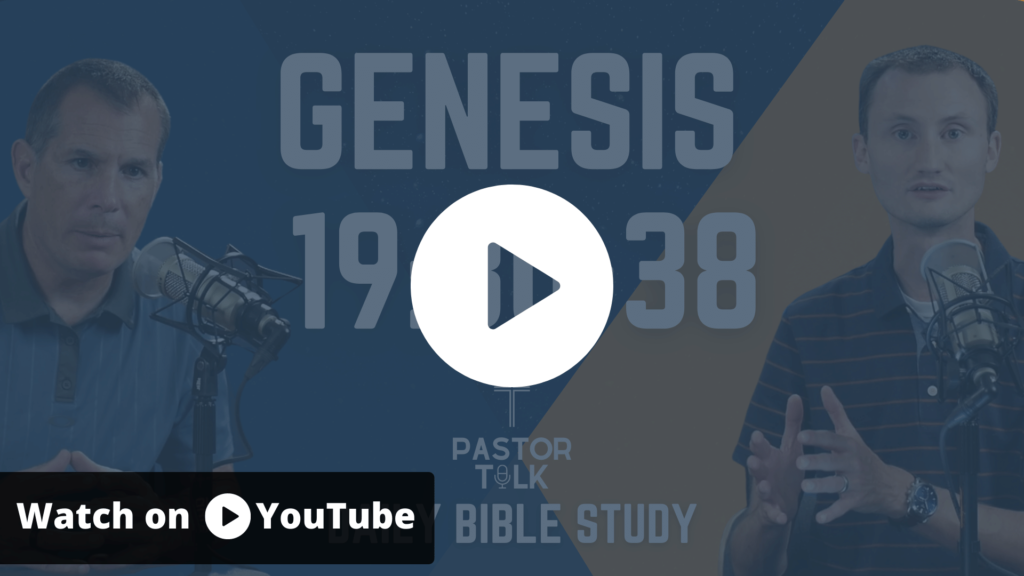
Lot and his daughters are saved from the destruction of Sodom only to find themselves hiding with many different fears. Today Pastors Clint and Michael finish this part of Lot’s saga and explore the strange, difficult genesis story of the Moabites and Ammonites. While these stories can be challenging, if we are willing to read closely and put them in conversation with the other stories that have come before, we discover that, like a puzzle, they all fit together.
Be sure to share this with anyone who you think might be interested in going along on this journey together through Genesis together.

Pastor Talk Quick Links:
- Learn more about the Pastor Talk series and view our previous studies at https://pastortalk.co
- Subscribe to get the Pastor Talk episodes via podcast, email and much more! https://pastortalk.co#subscribe
- Questions or ideas? Connect with us! https://pastortalk.co#connect
- Interested in joining us for worship on Sunday at 8:50am? Join us at https://fpcspiritlake.org/stream
